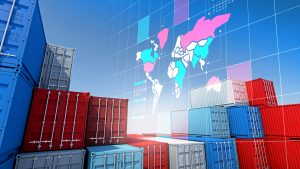The Impact of New Tariff Policies on Global Supply Chains and How to Adapt
The global trade landscape is once again shifting as the U.S. signals potential reciprocal tariffs against key trading partners, including China, Japan, the European Union, and Vietnam. These proposed measures, which aim to counteract what former President Donald Trump describes as “unfair trade practices,” could significantly impact global supply chains, increasing costs and disrupting procurement strategies. As companies face uncertainty, strategic planning and diversification are critical to maintaining supply chain stability.
How New Tariffs Could Disrupt Supply Chains
Rising Costs and Sourcing Challenges
The introduction of new tariffs could lead to higher import costs, particularly for businesses relying on materials and goods from affected countries. Manufacturers may face sudden price increases, forcing them to reevaluate sourcing strategies and renegotiate supplier contracts. With China being a major supplier of industrial components, technology, and raw materials, additional tariffs could ripple across multiple sectors.
Supply Chain Delays and Reconfigurations
Beyond cost implications, tariffs can also lead to logistical bottlenecks. Companies might need to redirect shipments, seek alternative suppliers, or adjust inventory management strategies to mitigate potential disruptions. This could be particularly challenging for industries with long production lead times, such as automotive and electronics manufacturing.
Increased Need for Supplier Diversification
Businesses that have historically relied on a single-country sourcing model may now be at heightened risk. As new tariffs are introduced, companies must explore alternative sourcing regions to minimize exposure. Emerging manufacturing hubs in Southeast Asia, Latin America, and India are becoming attractive alternatives. Learn more about supplier diversification.
Strategies to Navigate the Changing Trade Landscape
Exploring New Sourcing Markets
To counteract rising costs and potential disruptions, businesses should proactively evaluate suppliers in tariff-free or low-tariff regions. Countries like Mexico, India, and Malaysia are increasingly seen as viable alternatives for manufacturing and component sourcing. Leveraging regional trade agreements, such as the USMCA (United States-Mexico-Canada Agreement), can also help reduce trade-related costs.
Strengthening Supply Chain Agility
Businesses must embrace agile supply chain strategies to adapt quickly to policy changes. This includes:
- Building multi-supplier networks to avoid reliance on a single country.
- Enhancing real-time supply chain visibility with digital tracking tools.
- Developing contingency plans to respond rapidly to shifts in trade policies.
Leveraging Trade Compliance Expertise
Understanding new trade regulations and tariff structures is crucial. Companies should work closely with trade compliance experts to navigate evolving regulations, avoid penalties, and optimize their supply chain for cost efficiency. Find out how EDS International supports businesses with trade compliance.
Optimizing Cost Structures
Businesses facing tariff-related cost increases must look at cost-cutting measures beyond sourcing. This includes negotiating better terms with suppliers, optimizing logistics routes, and investing in automation to improve efficiency and reduce dependency on costly imports.
The Future of Trade and Supply Chain Strategies
As trade policies continue to evolve, businesses must stay proactive, informed, and adaptable. Companies that embrace supply chain resilience through diversification, digitalization, and strategic sourcing will be best positioned to navigate these challenges.
Why EDS International is Your Best Sourcing Partner
At EDS International, we specialize in helping businesses adapt to shifting global trade policies. With over 40 years of experience in strategic sourcing, supplier vetting, and global procurement, we provide customized solutions that minimize risk and maximize efficiency. Whether you need to identify new suppliers, reduce sourcing costs, or enhance supply chain flexibility, EDS International is your trusted partner.
Contact us today to future-proof your supply chain and stay ahead of global trade disruptions.








